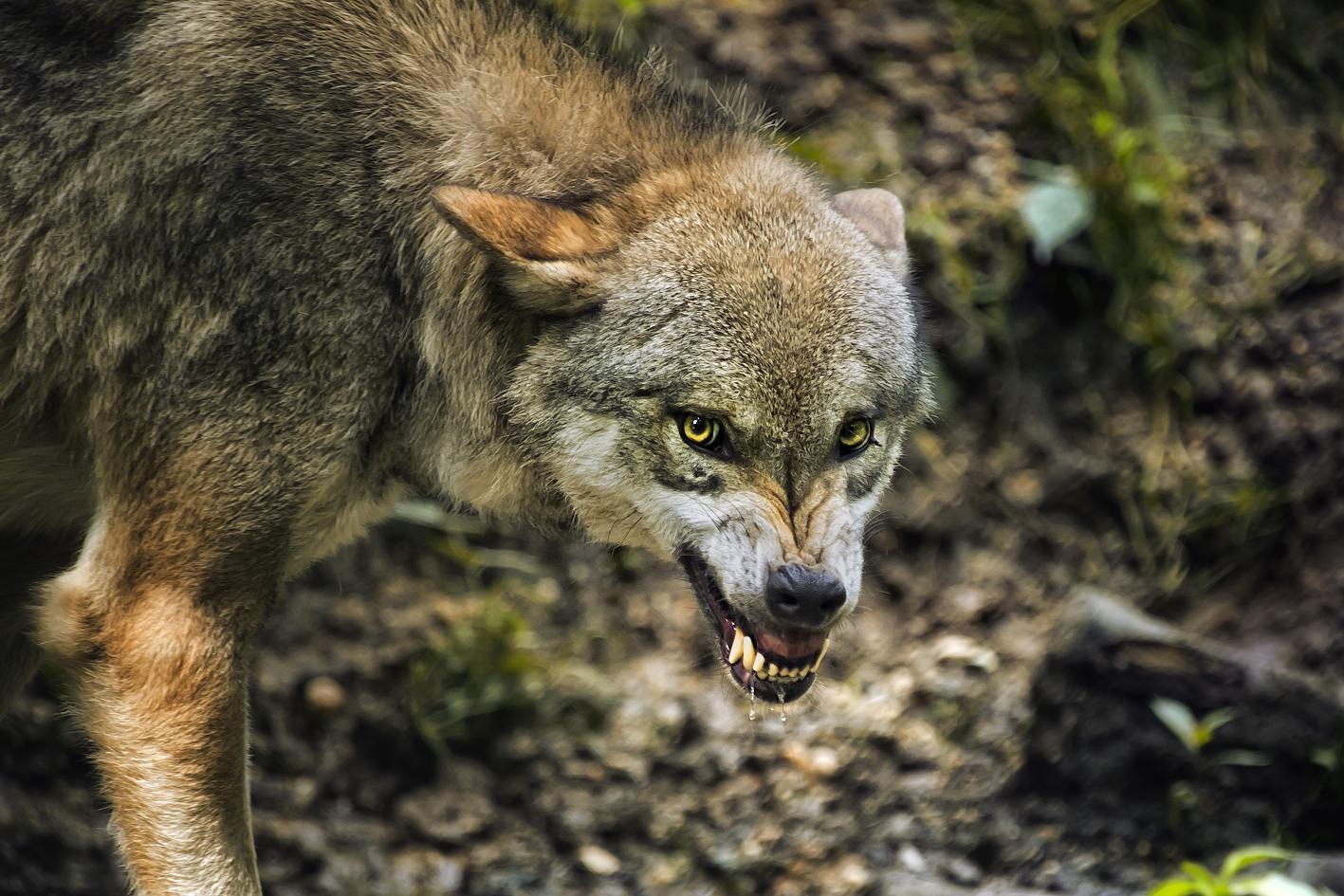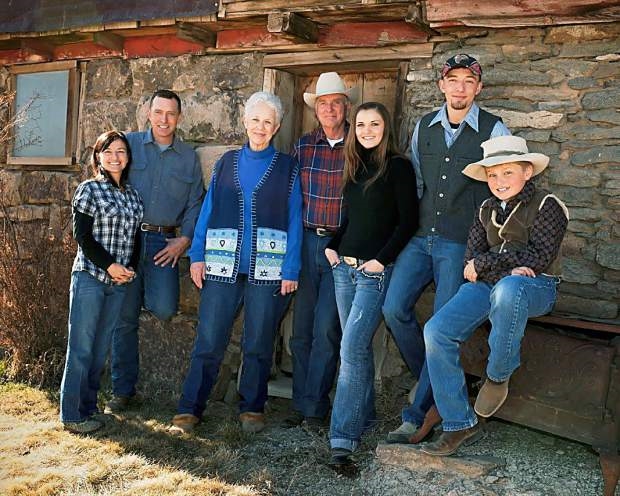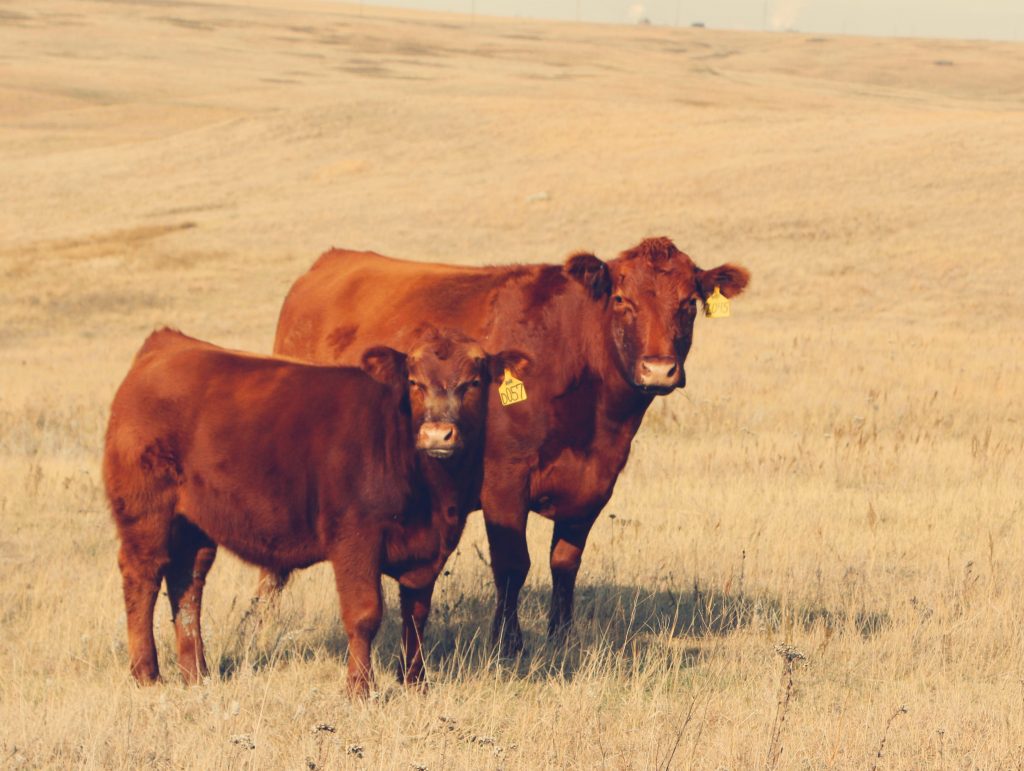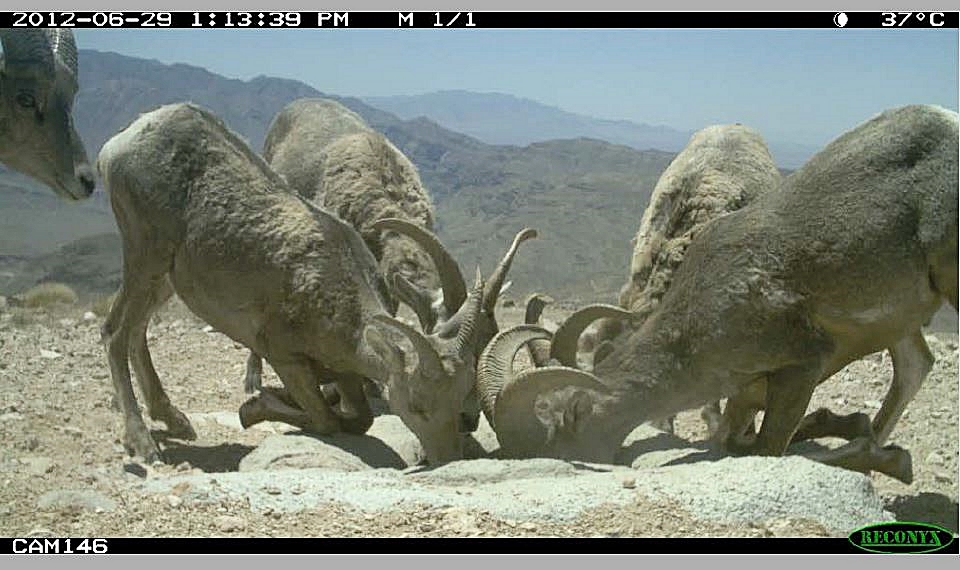On Jan. 3, a 550-pound calf was killed and when found, all of its internal organs had been eaten or dragged away. On Jan. 10, another calf was killed and on Jan. 11 a third calf was taken down. The latter two calves, both in the 300-pound range, were completely devoured, according to Birdseye.
Craig Reed
SW Oregon rancher copes with wolves
Ted Birdseye has lost animals to the predators, but is still trying to keep ahead of them
PROSPECT, Ore. — Ted Birdseye admits he has been fascinated with wolves since he was a kid, but now as a rancher, he’s not interested in feeding them.
That was the case, however, in early January on his Mill-Mar Ranch, a cow-calf and hay operation that is located near the Rogue River-Siskiyou National Forest on the west side of the Cascade Mountains and is several miles from the small communities of Prospect and Butte Falls, Ore.
Standing on the back deck of his home, Birdseye pointed north toward a couple of open pastures and then to the nearby forest. He said those were the sites of three confirmed wolf kills. They were just over a quarter mile from the deck.
On Jan. 3, a 550-pound calf was killed and when found, all of its internal organs had been eaten or dragged away. On Jan. 10, another calf was killed and on Jan. 11 a third calf was taken down. The latter two calves, both in the 300-pound range, were completely devoured, according to Birdseye.
John Stephenson, a biologist with the U.S. Fish and Wildlife Service and the primary wolf specialist for Oregon, confirmed that wolves were the predators in all three cases. These wolves are suspected to be the Rogue pack. Stephenson said there are seven to 12 wolves in that pack.
“What is the answer? There is none,” said the 65-year-old Birdseye, who studied animal and wolf behavior years ago while attending college.
‘The scourge’
“I’ve read historical trapping and ranching books and they all say the same thing … wolves are the scourge of stockmen,” the rancher said. “They kill. They are an apex predator. That is what they are programmed to do.”
Birdseye said he knew there were wolves in the area because back in November he heard a commotion outside his house at 4:30 in the morning. He stepped out his back door with a rifle and under a full moon, saw some of his cattle wedged in a corner of fencing and looking in the same direction. Through the scope of his rifle, Birdseye saw two wolves about 30 yards away.
“They were staring at the cattle, waiting for one to break away for the chase,” the rancher said.
Birdseye admitted he considered shooting at the wolves, which would have been an illegal act, but instead he shot over their heads. They instantly disappeared into the dark.
Although not confirmed as wolf kills, Birdseye said he has lost several other animals since moving to the ranch two years ago. Those include six cows, two registered Limonsin bulls, two Doberman Australian shepherd cattle dogs and a McNab-red heeler cross dog. He found one of the bulls and one of the cows dead, but has no evidence regarding their deaths or the disappearance of the other animals.
“It’s a paranoid situation,” he said.
Birdseye said he would like to co-exist with the wolves. But he has 200 mother cows and their calves to protect.
Free Range Report
Thank you for reading our latest report, but before you go…
Our loyalty is to the truth and to YOU, our readers!
We respect your reading experience, and have refrained from putting up a paywall and obnoxious advertisements, which means that we get by on small donations from people like you. We’re not asking for much, but any amount that you can give goes a long way to securing a better future for the people who make America great.
[paypal_donation_button]
For as little as $1 you can support Free Range Report, and it takes only a moment.




These wolves are not native here. Shoot all wolves on sight.
These animals that have been killed, gives him every right to shoot to kill the wolves. They are on his property. They will continue to come onto his property for food until he shoots them all. As Russell stated above, these wolves are not native.
As Wolf Depredation on Domestic Livestock escalates, in the U.S. and throughout the World with the Wolves successful re-introduction populations spread, the contentious anger between Livestock Producers and Conservationists does also spread. My published research Blog at http://WWW.FENCEFLAGWOLFTRAINING.COM is a tangible suggestion, with minimal cost, to mitigate the anger on both sides of the fence!DJK
Thank you!